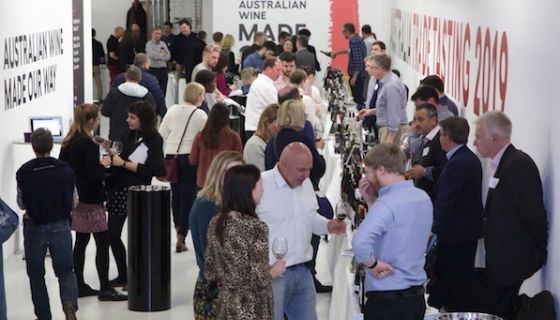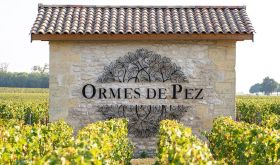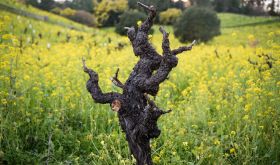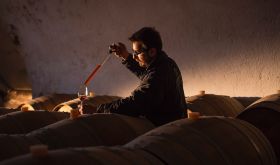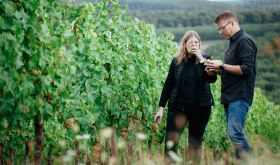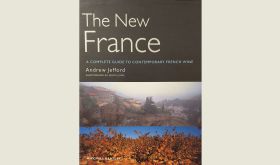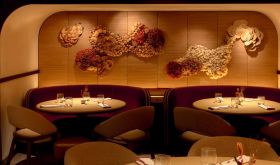We Brits may be suffering a crisis of confidence at the moment, but there is one aspect of life in which Britain, or at least its capital, can claim to be a world leader. Nowhere is better than London for the opportunities it offers to taste and learn about wine.
The two dozen or so merchants’ tastings that constitute Burgundy Week in January offer such an array of the most sought-after wines in the world that leading wine commentators from Asia and even France travel to London to take their place at the tasting tables. (See this guide to our coverage of this year's look at 2017 burgundies.)
But this is just one small feature of a typical year’s wine-tasting activity in London. Most days there are several different wine events, by no means all of them featured on the official diary of the Wine and Spirit Trade Association – as I know to my cost when trying to decide between clashing events. (Yes, it’s tough being a London-based wine writer.) Last week, for instance, the official wine trade diary tells me that on Monday two wine importing companies separately showed off their wares with portfolio tastings. Meanwhile Wines of Chile ran a competition for sommeliers.
Tuesday saw the Australia Trade Tasting (pictured), an annual generic event at which more Australian wines are open and available to taste – more than 1,000 wines from 200 different producers – than are ever seen in one place in Australia itself. Wine professionals travel from all over Europe to attend it. The following day was notionally one of recovery for the wine trade but Champagne Nicolas Feuillatte bravely tried to tempt them with a tasting the morning after. Wednesday was also the final deadline for national sommelier awards sponsored by a trade publication. On Thursday there was yet another tasting of dozens of 2017 burgundies and in another part of town was the biggest UK showcase of the year of the wines of the Loire.
The wine trade diary is curiously empty on Fridays, suggesting, erroneously, that the wine trade is still populated by those who spend weekdays in London and the weekend in the country. But in my experience there is no shortage of tasting opportunities on Fridays, whether it’s meeting visiting winemakers keen to show off their wares, marking a producer’s significant anniversary, or a massive horizontal (one vintage) or vertical (one wine) tasting for selected professionals. All last year and the beginning of this I have been so busy updating a massive wine atlas that I have declined the majority of wine invitations, but last Friday I attended a wine trade lunch in Vintners’ Hall for The Benevolent, the charity that offers a helpline for troubled members of the drinks trade. Pol Roger champagne, two classed growth Bordeaux, a premier cru white burgundy and an aged tawny port were served.
Last year’s Lord Mayor of London Sir Andrew Parmley is this year’s Master of the Vintners’ Company, one of the oldest livery companies in the City of London. He opens every reception at Vintners’ Hall by confidently welcoming guests to ‘the spiritual home of the world’s wine trade’. He is backed in this claim by England’s long history as an impartial, wide-ranging wine-trading nation, bolstered in the Middle Ages when Bordeaux was ruled for three centuries by the English crown. We Brits also have a fair claim to have played a crucial role in the development of sherry, port, madeira, marsala and champagne.
The fact that we have a tradition of wine-drinking and trading in wine but produce relatively little wine ourselves has helped widen the range of wines that are regularly enjoyed in Britain. The French drink mostly French wine, the Italians drink largely Italian wine, but the British range far and wide. All the southern hemisphere wine producers see the UK as a hugely important destination for their wines (even if the Australians have switched focus from British supermarkets to the much more profitable Chinese market). One London wine importer sent out an invitation last week to his portfolio tasting promising wines from Ukraine, Turkey, Morocco, Bulgaria, Slovenia, Slovakia, Romania, Canada and the Finger Lakes in New York state. And there is nothing unusual about this roster.
It is true that Hong Kong, and to a lesser extent Singapore, has overtaken London as the nucleus of fine-wine consumption. Wine lovers there rarely drink anything less grand than second growth bordeaux and premier and grand cru burgundy. But HK wine collections are largely restricted to the most classic regions – which means mostly French with a smattering of Italy’s top names. Not so for us broad-minded Brits.
It is no coincidence that, up to now anyway, London has been a magnet for wine-minded young Europeans. Wannabe French sommeliers learn far more by cruising the several tastings held most days in London than by staying at home on a diet restricted to Sancerre and Beaujolais.
New York has a reasonable array of wine events, some of them quite glamorous (and expensive), but nothing like as many and as regularly as London.
Another defining aspect of London as a wine capital is the sheer range of wine courses on offer here. The Wine & Spirit Education Trust was born exactly half a century ago, one of many trade educational bodies set up at the behest of the Labour government of the day. Today the WSET is the world’s leading wine educator with 95,000 students a year based all over the world. But the biggest portion of them are still in Britain, and on any day or evening about 10 of its courses will probably be being held somewhere in London (and eight more in the rest of the UK). A good third of its students nowadays have no professional connection with the wine trade.
An even older and more exalted international educational body is the Institute of Masters of Wine, founded in Vintners’ Hall in 1953. The Court of Master Sommeliers, now a massive organisation, particularly but by no means exclusively in the United States, was also started under the auspices of the Vintners’ Company in London. The first MS exam was held there in 1977.
And then there is the small matter of the auction houses and publishers, each sector playing a major part in wine, and with considerable international influence.
Forgive me if I sound jingoistic. It seems rather comforting nowadays.
LEARNING ABOUT WINE IN LONDON
Wine & Spirit Education Trust
39-45 Bermondsey Street
London SE1 3XF
wsetglobal.com
Berry Bros & Rudd Wine School
3 St James’s Street
London SW1A
bbr.com/wine-events/school
Davy’s
161-165 Greenwich High Road
Greenwich
London SE10 8JA
davy.co.uk
East London Wine School
Various locations in the City, East London and Essex
eastlondonwineschool.com
Leiths School of Food & Wine
16-20 Wendell Rd
London W12 9RT
leiths.com
London Wine Academy
158 Buckingham Palace Road
London SW1W 9TR
londonwineacademy.com
Michael Schuster Wine
107 Culford Road
London N1 4HL
Michaelschusterwine.com
Theatre of Wine
Greenwich and Tufnell Park
theatreofwine.com
ThirtyFifty
thirtyfifty.co.uk
West London Wine School
177B Lyham Road
London SW2 5PY
westlondonwineschool.com
The Wine Education Service
wine-education-service.co.uk
For courses elsewhere in the UK and in other countries, see the Wine courses pages of our free Learn section.

